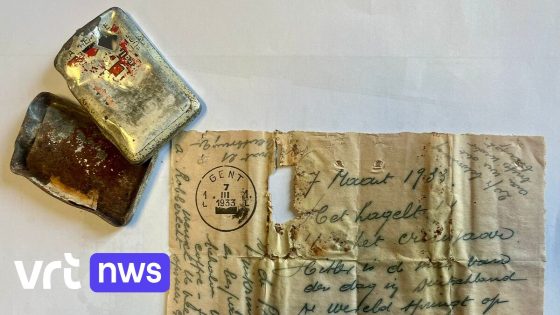A remarkable discovery was made at Hotel 1898 The Post in Ghent, Belgium, when a nearly 100-year-old letter was found hidden in the wall during renovation work. Could this letter offer a glimpse into the past? Dated March 7, 1933, it reveals the writer’s thoughts on the turbulent times of that era.
- Letter found during hotel basement renovations
- Historical context from March 7, 1933
- Reference to Hitler's rise in Germany
- Critique of postal service budget cuts
- Writer aimed to provide hope amid despair
Historic Letter Found in Ghent Hotel Reveals Insights from 1933
This intriguing find raises questions about how much we can learn from our past. What stories could other buildings tell if only they could speak?
Uncovering History: The Context Behind the Letter
The letter found at Hotel 1898 The Post sheds light on a critical moment in history—March 1933, when Adolf Hitler was gaining power in Germany. The author laments about economic hardships and government cutbacks affecting postal services while expressing hope amidst despair.
- The letter dates back to a time of significant political upheaval.
- It reflects concerns over economic conditions and social stability.
- The mention of Hitler signals a turning point for Europe.
- This historical context is crucial for understanding modern challenges.
The Significance of Historical Discoveries Like This One
Finding artifacts like this letter helps US connect with our shared human experience. Such discoveries remind us that people throughout history have faced similar struggles and sought hope amid chaos. How might these reflections influence our perspectives today?
A Glimpse into Life During Political Turmoil
The writer’s words resonate even now as they describe life during crisis: “The world jumps on crutches.” This metaphor illustrates how society often relies on fragile support systems during difficult times—a sentiment still relevant today as many navigate their own crises worldwide.
Lessons Learned from Our Past: Why They Matter Today
This historical artifact serves as a reminder to reflect on our current political landscape and societal challenges. By studying past events, we can better understand present issues and work towards building a more resilient future. What lessons can we take away from this poignant message?

































